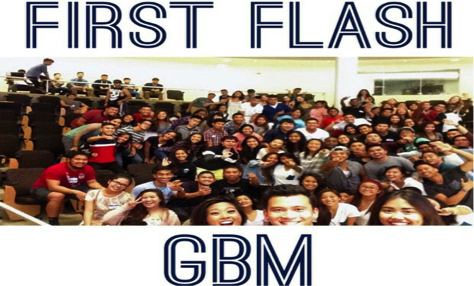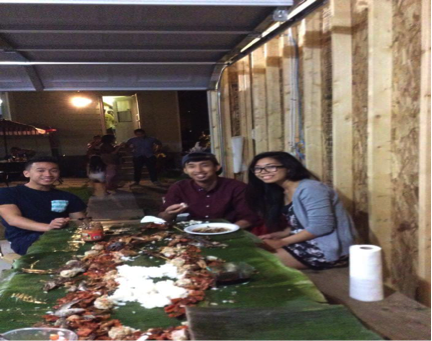For those of you who haven’t read Professor Renato Constantino’s article, “The Miseducation of the Filipino”, I highly suggest you do! As Filipino-Americans, it is important to note that this essay raises points of emphasis towards the Americanization of life in the Philippines, from education to economic attitudes. The essay draws attention to the shame that Filipinos have in their own nationality, and the language barrier that has attributed to this characteristic that some Filipinos have. Originally written in 1959, I was still able to see the difficulties that were addressed in this article in today’s generation of Filipino-Americans.
About twelve years ago during recess in 2nd grade, I was struck with a question that resonated with one of the topics in Professor Constantino’s article. The question was simple, yet left me astonished and excited to find out what I had been oblivious to for the first eight years of my life. The question was this:
“Did you know your last name means “thank-you” in Tagalog?”
With a blank stare from the overwhelming information I just received, I went home that day with so many questions for my mother.
“Mom, how come I can’t speak Tagalog?”
“Is it too late for me to learn it?”
“How come you never told me our last name meant thank-you?”
This simple question opened my eyes to the disconnection between my American lifestyle and Filipino heritage due to the conflict between national and foreign language.
When approaching this conflict, it is important to consider which of the languages is considered to be national or foreign. In Constantino’s article, the Philippine educational system is taught in the foreign English language, which creates the shameful attitude towards the national Filipino language spoken everywhere else in the Philippines. In my case, it is similar but also opposite in the fact that English is the standard language in America everywhere while the Filipino language is foreign and primarily spoken at home. In both cases, the conflict generates the shame towards Un-Filipino Filipinos, something that I experienced given my inability to speak the foreign Filipino language.
In Constantino’s article, he quotes Rizal in regards to the tragic effects of a colonial education, in which he states:
“What are you going to do with Castilian, the few of you who will speak it? Kill off your own originality, subordinate your thoughts to other brains, and instead of freeing yourselves, make yourselves slaves indeed!”
Looking at this situation in the perspective of a slave emphasizes what we, as Filipinos, are giving up – our nationalistic pride in our Filipino culture. All of this stems from the language barrier which is so prominent in past and present-day Philippine issues. It is what has made me feel less of a Filipino and identify myself as American over my foreign roots. Although this has prevented me from understanding the tears and joy of Filipino teleseryes, or what exactly my titas and titos are talking about at the family parties, I cannot stress enough how this is not the end-all-be-all of defining one’s Filipino roots.
Going into my freshman year of college, I had no intentions of joining anything Filipino related. My high school was very diverse, and I was more school and career oriented throughout those four years. It was not until my senior year of high school that I realized that I did not want to do engineering as a career for the rest of my life, and switched my intended major to business administration. This is what led me to Seton Hall University and my now open-mindedness towards opportunities which may arise. I was introduced to members of the Filipino League at Seton Hall, an affiliate of the Filipino Intercollegiate Networking Dialogue, both of which I had no idea existed. I remember saying:
“A Filipino club? How corny is that? It sounds so lame.”
But it was because of my open-mind that I experienced the Kapamilya that I am now part of, and it is because of this experience that I have the memories from my freshman year. Not to mention, I recently served as External Public Relations Officer for the 2015-2016 school year, and am now a Public Relations Officer for District III E-board for the following school year.
I remember my goal for joining FLASH was to learn more about the culture and pick up as much Tagalog as I could, but now looking at the two years that I have spent with the club, I have come to realize that:
“You do not need to understand the language to understand the culture.”
“You do not need to speak the language to taste the amazing dishes of the Philippines.”
“You do not need to speak the language to learn Tinikling or the various line dances at parties.”
“You do not need to speak the language to embrace the family bonds made during a Kamayan or Simbang Gabi.”
What you do need, however, is to stop saying that this language barrier is shameful to our culture. Appreciate every little thing about being Filipino, whether it be eating with your hands, pointing with your lips, calling people with a simple “sst” noise, etc. The language barrier prevents us from understanding the language, yes, but the language does not define the culture. I am grateful for the experience I have had with FLASH and FIND thus far, and look forward to finding new ways to appreciate my native culture. Salamat.





